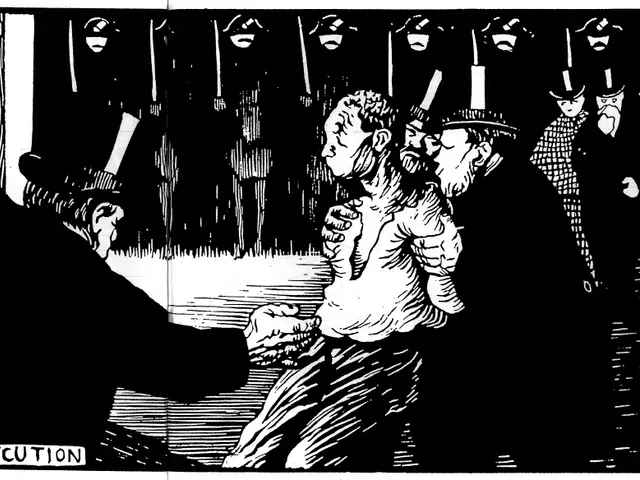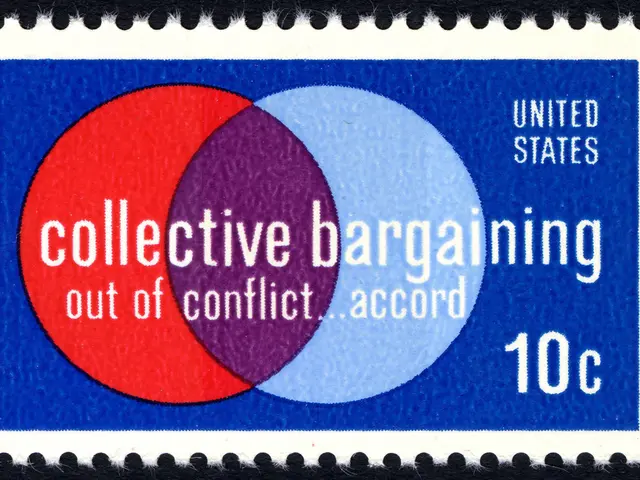Spahn denies masking allegations made against him
Attacking the Responsible: Allegations Hurled at Spahn in the Mask Procurement Fiasco
The political storm continues to brew as German parliamentarians square off over the controversial mask procurement scandal during the pandemic, with former Health Minister, Jens Spahn, standing in the crosshairs. What unfolded back then was a desperate hunt for protective masks when the world faced an unprecedented crisis. But Spahn's decisions made during that period are now under scrutiny, with the publication of a damning report by Margaretha Sudhof, the former state secretary from the ministries of justice and defense.
Team Me, Not Team State: Unheeded Warnings?
According to a secret report leaked by the Süddeutsche Zeitung and broadcasters NDR and WDR, the proceedings in the ministry during the pandemic paints a picture of "Team Me" rather than "Team State" under Spahn. The report suggests that the mask procurement debacle was not due to a lack of economic understanding as much as it was a result of Spahn's political ambition. Allegedly, Spahn acted arbitrarily and against the recommendations of his specialist departments during the pandemic, disregarding internal criticism.
Overstepping Boundaries: Spahn's Justification
In a recent ARD interview, Spahn justified his actions, admitting that in the initial phase of the pandemic, there was confusion. He stated that masks were not readily available worldwide, and hospital staff might even have stopped working without them. Speaking on the procurement process, Spahn said that at the time, they did not follow procurement law, but worked with what was feasible given the circumstances.
Nevertheless, Spahn has called for a parliamentary inquiry committee to examine the pandemic response systematically and as promptly as possible, ideally before the summer recess.
The Mask Report: A Looming Reveal
The mask report, commissioned by Health Minister Karl Lauterbach in 2021, offers a glimpse behind the scenes of the controversial mask procurement process under Spahn. Despite the report not being officially published, its contents have sparked heated debates in German politics.
Facts at a Glance:
- Jens Spahn, former German Health Minister, faces allegations of arbitrary decision-making in mask procurement during the pandemic.
- The mask report by Margaretha Sudhof reveals that Spahn acted against the advice of specialist departments and favored individual action over collaboration with the interior ministry.
- The report's publication is imminent, and it could further fuel the political controversy surrounding Spahn's tenure as Health Minister.
- The shortage of masks during the pandemic was severe, prompting emergency measures and the awarding of more than 700 contracts for FFP2 masks.
- The overpriced contracts led to a surplus of masks by August 2020, with Jens Spahn suggesting giving away 250 million masks.
- In January 2023, a court ruling compelled the health ministry to disclose files related to the procurement decisions.
- The European Union, aware of the politically charged mask procurement fiasco in Germany, may find interest in the imminent revelations from the mask report, given its commitment to a common policy on the environment, health-and-wellness, and general news.
- The mask procurement debacle in Germany, outlining a dynamic of 'Team Me' versus 'Team State' under Jens Spahn, may prompt discussion in science circles, as the role of political ambition versus expertise in decision-making during a global health crisis raises questions about effective governance and response strategies.
- As the mask report sheds light on Spahn's actions during the pandemic, it could provide valuable insight not only for medical-conditions specialists interested in understanding the challenges faced during the crisis but also for policymakers seeking to learn from past mistakes in the context of politics and crisis management.








